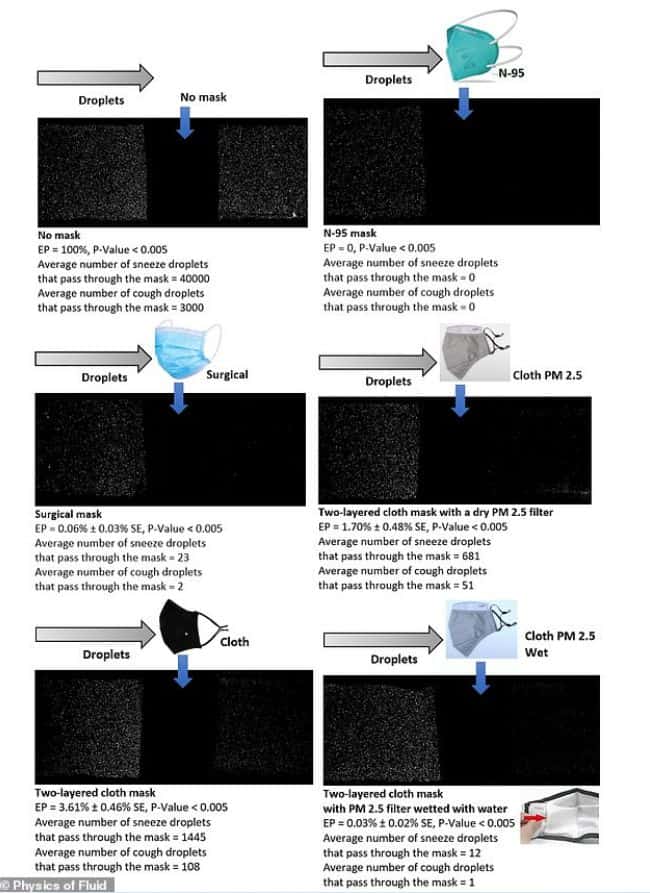According to research, too many contaminated droplets can penetrate the fabric
Fabric masks are not enough to curb the spread of Covid-19 disease without adhering to social distances, as they allow several droplets to penetrate that could infect someone less than two meters away, the US scientists warn.
According to a study published in the journal Physics of Fluid, the researchers carried out the test with five types of mask: the N95 high protection mask, the surgical mask, the fabric mask, the double-layer fabric mask and a double-layer fabric mask with filter.
With the help of a special device that launches tiny droplets into the air, such as those fired from our noses when we sneeze or when we cough, the researchers came to the following conclusions:

The first type of mask “N95” managed to entrap 100% of the droplets while a normal fabric mask blocked at least 96.4% of the droplets.
In other words, more than 1,000 droplets can penetrate the fabric mask during sneezing. In the double layer fabric mask, more than 600 droplets can penetrate.
According to scientists, each droplet can contain millions of particles of the virus, of which, when one is 1.8 meters away, can be infected with the virus by inhalation.
Scientists at the University of New Mexico in the United States have found that while all masks prevented at least 95% of cough and sneezing droplets, there was still a risk of transmitting the disease.
“The use of a mask offers substantial, but not complete, protection to people belonging to vulnerable groups,” said study leader Krishna Kota.
Experts recommend that masks may offer limited protection to those who wear them but generally prevent the transmission of the disease from people who are infected and unaware of it.
“However, if people are very close to each other, there is still the possibility of the virus spreading,” Dr Kota added.
“It’s not just masks that help. “Both masks and distances are necessary,” Doctor added.
However, at distances of less than 1.8 meters, about 3% of the droplets that can penetrate the mask and float could infect someone with the disease. With a single sneeze, up to 200 million virus particles can be released.
